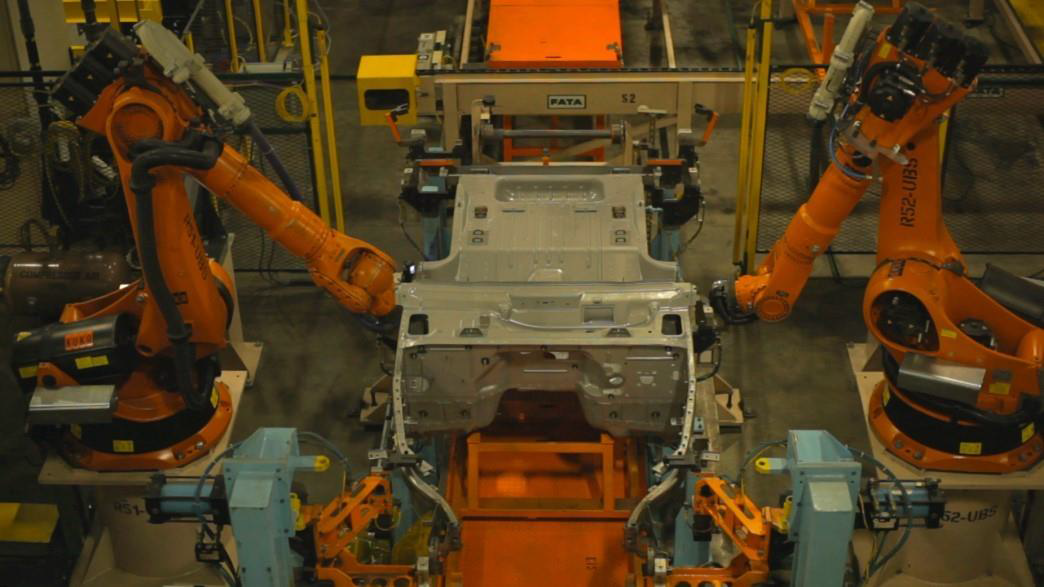 |
Driving Transformation in the Industrial Segment |
|
| Blog: The Internet of Things Manufacturing Series, Part 3: driving transformation in the industrial segment
Sanjay Ravi, Managing Director, Worldwide Discrete Manufacturing, Enterprise and Partner Group, Microsoft “You learn a lot in 100 years. Here’s to the next 100. Dodge—Born 1914.” If you didn’t tune in, that was the on-screen copy for the 2015 Dodge Super Bowl commercial, celebrating the automaker’s 100th birthday. And when you think of the innovation in industrial manufacturing over the last century, this certainly rings true for the industry as a whole. Since the birth of the first moving assembly line and interchangeable parts for large-scale manufacturing, industrial manufacturing has always been a segment highly reliant on continued learning, ingenuity and innovation. And as one innovation leads to another, fast forward a hundred years, and we find ourselves in a time of the Internet of Things (IoT) where the opportunities for continued innovation are better than ever.
IoT for industrial manufacturing Today’s advancements in sensors, devices, connectivity, machines and data insights have created a powerful combination that can unlock business value, drive innovation, and take your business to heights you never imagined. Kuka Robotics, for instance, is bringing IoT to the shop floor for great gains. By taking advantage of IoT to connect and monitor thousands of devices and robots, it created a factory so efficient it redefines productivity. While Henry Ford’s assembly line innovation reduced the time it took to build a car from more than 12 hours to two-and-a-half, IoT has enabled Kuka to now assemble a complete car body in 77 seconds. And that includes eight different Jeep Wrangler bodies on the same production line! You can learn all about it here. Other manufacturers, like M.G. Bryan Equipment Co., are using IoT’s potential for remote asset management. A leading heavy equipment and machinery OEM for the oil and gas industry, the company is using cloud computing for remote management of high-tech fracturing equipment and its rapidly expanding fleet of vehicles. Having secure access to a higher degree of connected intelligence, M.G. Bryan can cost-effectively keep tabs on its equipment, right down to the condition of individual vehicles’ drivetrains, and help maximize asset uptime, dramatically improving ROI. With IoT, industrial manufacturers have the ability to innovate in all areas of their business, from the factory floor, the supply and demand chain, product development and customer service. In addition to the key areas where IoT can unlock the most value, which I talk more about in a previous post, it’s also transforming business models, providing new opportunities for revenue growth. Propelling new business models An IDC study commissioned by Microsoft concludes that, with help from the advanced data analytics that IoT provides, manufacturing stands to gain $371 billion in value in the next four years. One major opportunity for growth is through new value-added business services that go along with its products, drastically shifting business models from an asset-centric transaction to a service-centric relationship model. A great example of an innovative equipment manufacturer that is extending the relationship after equipment is sold and delivering high-end services is ThyssenKrupp Elevator. One of the world’s leading elevator manufacturers, they wanted to go beyond the industry standard of preventative maintenance to offer predictive and even preemptive maintenance, enabling them to define a needed repair before a breakdown happens. I encourage you to read more about their powerful IoT story in this article. So, how do you create IoT in industrial manufacturing? The platform for industrial IoT Despite persistent messages to the contrary, IoT does not need to be complicated. It’s here today, and the examples I’ve shared are just a small slice of what you can achieve. And there’s a lot you can do with the technology you already have. Helping manufacturers build on existing technology assets, devices and data to derive business value from IoT is a cornerstone of Microsoft’s vision for the mobile-first, cloud-first enterprise. We believe The Internet of Things starts with your things. With Microsoft Azure IoT services, you can monitor assets to improve efficiencies, drive operational performance to enable innovation, and leverage advanced data analytics to transform your company with new business models and revenue streams. We look forward to witnessing the new innovations that industrial manufacturers will unlock through IoT and helping you along the way. If you’d like to learn more, you can watch this interactive webcast with ThyssenKrupp, Microsoft and Frost & Sullivan where we further discuss the power of IoT for advancing innovation in manufacturing. You can also read about IoT’s opportunities for the automotive and high-tech segments in my three-part IoT in manufacturing series.
|
||

